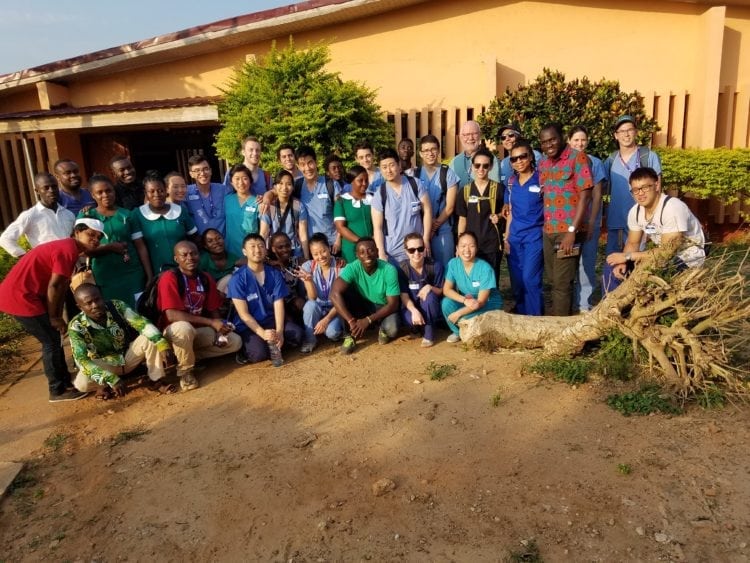
David Nguyen, President of the UWSOP Global Brigades team, led a team of students, along with Institute for Innovation in Pharmacy Practice (I2P2) Endowed Clinical Professor Don Downing, to return to Ghana and advance the training program begun last year.
Historically, Global Brigades programs bring health sciences students to under-resourced countries with the goal of providing a three or four day clinic to help people with acute conditions.
In 2015, a team of about twenty students went to Panama to provide care to about 800 people in a matter of days. In three days, with that many patients, there is only so much that can be done: treat minor injuries and ailments, provide ibuprofen and vitamins, check vitals.
Fourth year PharmD student David Nguyen was a part of the Panama team and he saw an opportunity to do more than triage. He wanted to train local health professionals to create a sustainable approach to the trips.
Working with Don Downing and a team of faculty preceptors, David led the Global Brigades team in developing a program to teach the clinic’s nurses and physician assistants to recognize the signs and treat hypertension, the number one killer in Ghana. Last year, the team began this innovative approach in two clinics.
“Leading an entire group to another country and creating a new Brigade taught me more leadership skills than any other experience I’ve had. I couldn’t have done any of this without my team members.”–David Nguyen, 4th year pharmd student
This year, the team expanded into three clinics. PharmD student Job Pan created hypertension stage one and stage two flow charts following the current Ghanaian protocol and included the three most used medications in Ghana for hypertension in order to empower the nurses to identify and take action when therapy is suboptimal or lacking. “The most valuable thing that I learned was how to approach healthcare problems in rural communities of a developing country,” said David. “Like us, they face health care barriers like transportation and economic standing, but it is on a much larger scale in Ghana than here in the U.S.”
Another team on-site brought a polaroid camera. “Everyone was excited and went home to put on their best clothing for their photo. I realized that they’ve never had a picture of themselves before. Sometimes it is the simple things—having a photo of your family—that change lives.”
David hopes the team’s work enables nurses to screen for hypertension for each adult that visits the clinics; that the nurses will be more comfortable to advocate for their patients’ health; and have trained healthcare workers and other nurses to raise awareness about hypertension.
Are you interested in training with the top-rated faculty like Professor Downing and studying pharmacy with preeminent student peers like David and Job?
Click here for more information about the UW PharmD program.